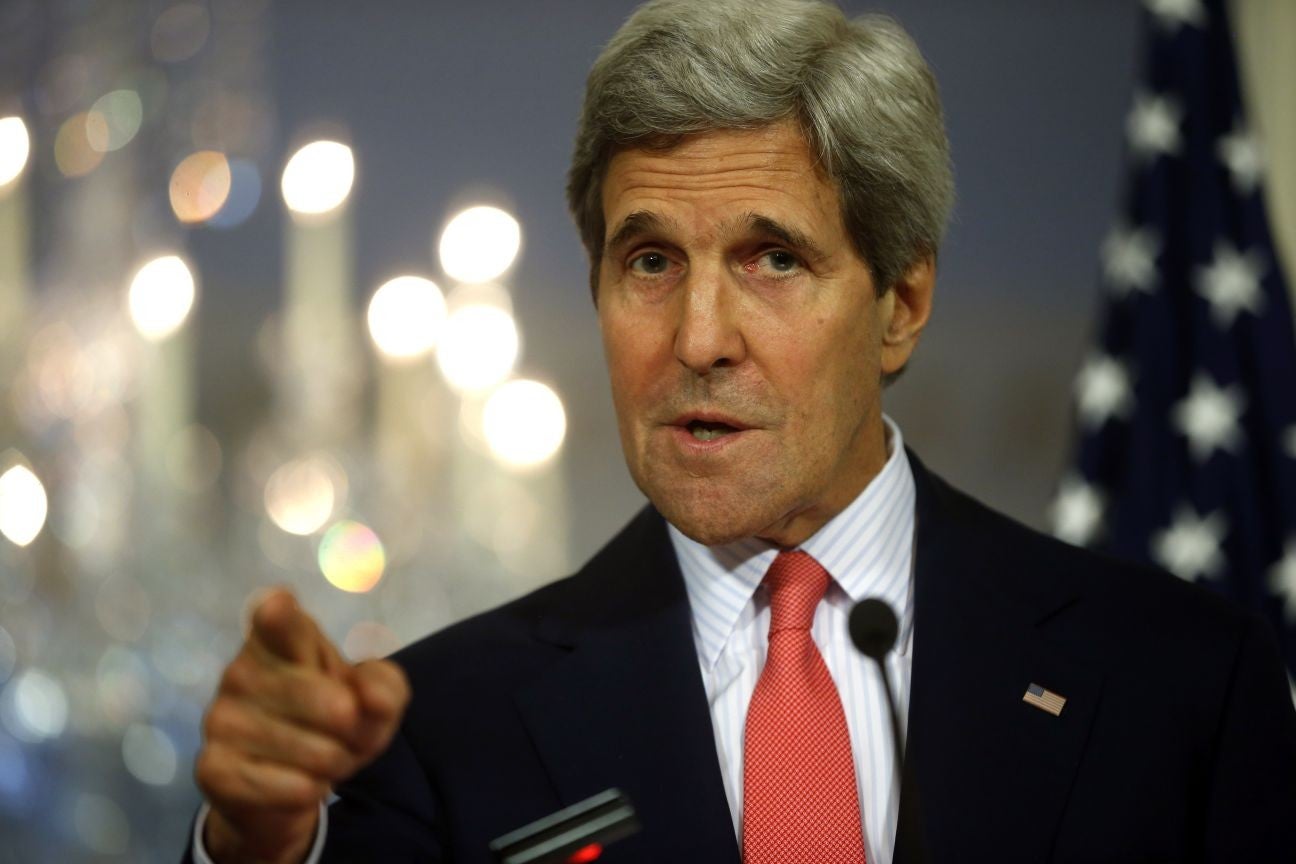China dispute with Vietnam escalates as rioters torch foreign-owned factories
Governments' disagreement stems from China's placement of an oil rig in disputed Southeast Asian waters
Your support helps us to tell the story
From reproductive rights to climate change to Big Tech, The Independent is on the ground when the story is developing. Whether it's investigating the financials of Elon Musk's pro-Trump PAC or producing our latest documentary, 'The A Word', which shines a light on the American women fighting for reproductive rights, we know how important it is to parse out the facts from the messaging.
At such a critical moment in US history, we need reporters on the ground. Your donation allows us to keep sending journalists to speak to both sides of the story.
The Independent is trusted by Americans across the entire political spectrum. And unlike many other quality news outlets, we choose not to lock Americans out of our reporting and analysis with paywalls. We believe quality journalism should be available to everyone, paid for by those who can afford it.
Your support makes all the difference.Mobs of rioters in Vietnam torched at least 15 foreign-owned factories and trashed or looted many more following a large protest by workers against China's recent placement of an oil rig in disputed Southeast Asian waters, officials said Wednesday.
The unrest at industrial parks close to Ho Chi Minh City built to attract foreign investors is the most serious outbreak of public disorder in the tightly controlled country in years. It points to the dangers for the government as it manages public anger at China while also protesting itself against the Chinese actions in an area of the South China Sea claimed by Vietnam.
The unrest late Tuesday at a Singapore-run industrial park and others nearby in Binh Duong province followed protests by up to 20,000 workers. Smaller groups attacked factories they believed were Chinese-run, but many were Taiwanese or South Korean, the provincial government said in a statement.
On Wednesday morning, groups of men on motorbikes remained on the streets and all the factories in the area were closed, said a park manager who declined to give his name because of the sensitivity of the situation. Riot police were stationed around the area but men were still seen carrying looted goods, said a security guard, who also declined to be identified.
The guard said looters stormed his factory at 1am and took computers and anything valuable.
“The whole industrial zone looks like it was just smashed by a typhoon,” the guard said.
Another executive said many foreign-owned factories were putting banners on the gates of the factories saying, “We love Vietnam” and “Hoang Sa, Truong Sa - Vietnam,” using the Vietnamese names for the Paracel and Spratly islands claimed by both Vietnam and China.
The government said the protests were initially peaceful but were hijacked by “extremists” who incited people to break into the factories. It said at least 15 factories were set alight and “hundreds” more vandalised or looted, and that some security guards and unidentified “foreign experts” were assaulted.
China's Foreign Ministry and its embassy in Hanoi issued warnings to Chinese citizens. The embassy's website said it sees no end to attacks by what it called anti-China forces and urged Chinese to take safety precautions and avoid unnecessary travel.
There are economic stakes for both countries if the standoff and tensions continue.
China is Vietnam's biggest trading partner, exporting billions of dollars of materials each year for factories producing goods including clothes, shoes and smartphones as well as cheap consumer goods. Beijing is also becoming an important investor in the country. In 2013 it invested $2.3 billion, a sharp rise from the previous year, according to the Ministry of Planning and Investment.
The Singapore government, which operates two industrial parks hit by rioters, called on Vietnam's government “to act immediately to restore law and order ... before the security situation worsens and investor confidence is undermined.”
Vietnam reacted angrily after China towed a deep-sea oil rig on 1 May close to the Paracel Islands, which are controlled by China but claimed by Hanoi. It sent a flotilla of vessels to try to disrupt the oil rig. Some of the Vietnamese boats clashed with Chinese ships sent to protect the rig.
Over the weekend, the government gave rare permission for street protests against China in cities across the country. The protests were enthusiastically covered by the state media, unlike the ones on Tuesday, which appear to have been hit by a media blackout.
The ruling Communist parties in China and Vietnam maintain close links and until May 1 had been trying to handle tensions over the territorial disputes quietly. Vietnamese authorities are normally highly nervous about spontaneous public gatherings of any sort. Many of the leaders of the anti-Chinese protests are also calling for basic democratic reforms, presenting a challenge to one-party rule.
The standoff underlines China's aggressive pursuit of its territorial claims despite complaints from smaller nations such as Vietnam and the Philippines, which also claim parts of the waters. The United States, a treaty ally of the Philippines, has called the latest Chinese action “provocative.”

Last month, the Philippines protested China's efforts to reclaim land in a disputed reef in the South China Sea after surveillance aircraft took pictures of dredging by Chinese vessels at Johnson Reef in the Spratly Islands, which the Philippines says violates a regional non-aggression pact, Foreign Secretary Albert del Rosario said.
Del Rosario told The Associated Press that it's not clear what China intends to build on the reef, which Manila claims as part of its western province of Palawan, but one possibility is an airstrip. Another official said China could also build an off-shore military base.
AP
Join our commenting forum
Join thought-provoking conversations, follow other Independent readers and see their replies
Comments